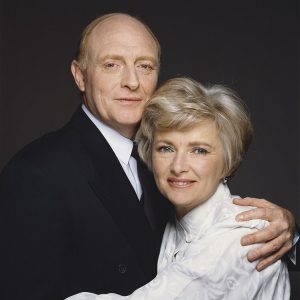One of the world’s top literary awards, the Booker Prize for fiction will be announced on Thursday at a ceremony featuring former US president Barack Obama in London.
Writers from Salman Rushdie to Margaret Atwood and Hilary Mantel have previously won the coveted awards.
The latest winner will be chosen from the most diverse shortlist in its five-decade history featuring four debut novels, and four books by writers of colour. For this year’s award, 151 books were submitted.
The prize is for a work of fiction originally written in English and published in the UK.
The winner gets £50,000 (about $65,000, 57,000 euros). While well below the roughly $930,000 for the Nobel Prize for Literature, it tops the Pulitzer’s $15,000 purse.
France’s Goncourt offers a symbolic 10 euros ($11).
But sales of the winning book — and often those on the shortlist — skyrocket, with the Booker also promising “guaranteed international recognition”.
The five-person judging panel have several months to go through scores of books to settle on around a dozen candidates. This is whittled down to a shortlist of six and then a single winner.
The prize was launched in 1969 by British publishers trying to match the glamour of France’s Prix Goncourt, with sponsorship from grocery wholesaler Booker.
It was renamed The Man Booker Prize in 2002 in a nod to the hedge fund that took over sponsorship.
Here is a recap of the prize’s highs and lows from the year gone by:
1. In 2014, the prize was opened to American writers sparking controversy. Previously, it had been reserved to authors from Britain, Ireland, Commonwealth countries and Zimbabwe.
The “dice are now loaded against UK authors,” complained novelist and former judge Susan Hill.
Australia’s two-time winner Peter Carey said it had become “an exercise in global corporate branding”.
2. The Booker is also notorious for clashes on the jury as well as the snobbery surrounding it. Some critics dismissed the 2011 shortlist as “too readable”.
3. In 1980, ‘Clockwork Orange’ writer Anthony Burgess refused to attend the ceremony unless he won. He didn’t and William Golding took home the money.
4. Neither have all winners been happy. John Berger gave half his prize to the Black Panther movement in 1972 and tore a strip off the sponsors for “exploiting the Caribbean”.
5. In 2019, it reverted to its original name when US charity Crankstart Foundation, founded by Silicon Valley billionaires, became the funder.
6. In 2016, a separate £50,000 International Booker was introduced for a work of fiction translated into English, with money being divided between author and translator.






